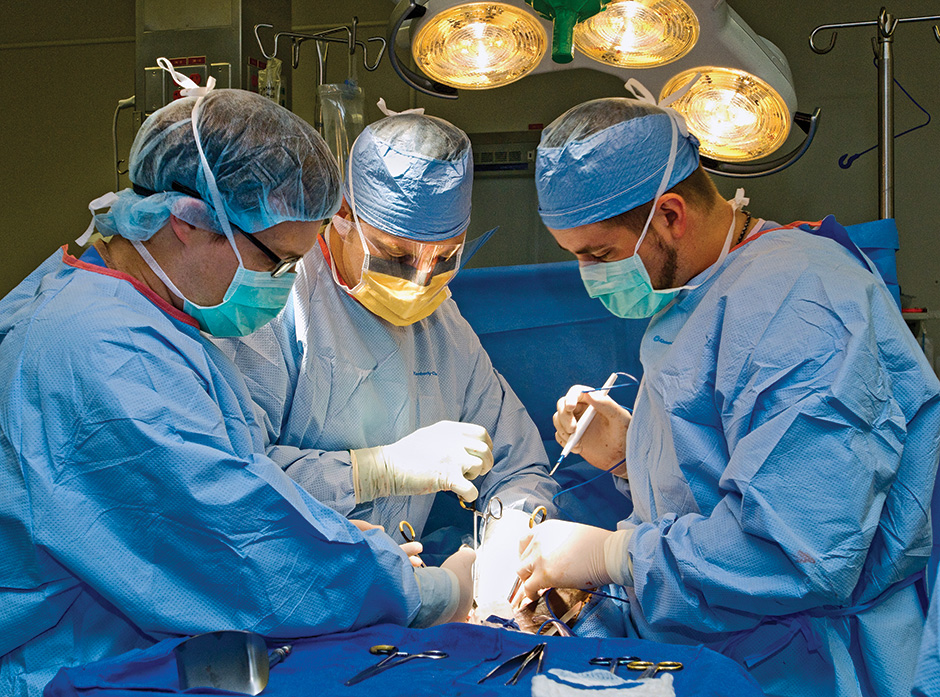- Home
- Trauma
Trauma
Trauma directly causes 160,000 deaths in the U.S each year.Many of these will be in the ICU before passing away.
Altogether, 3 million Americans are injured each year. Over a million of require ICU care and about 25% develop serious complications
Causes of Injury

In the adult population falls are the leading cause of trauma. Usually these happen from a roof or ladder.
These are more severe than from a stumble or passing out.
- Other major causes of traumatic injuries include:
- Automobile and motorcycle crashes
- Bicycles, boats
- Gunshots
- Stabbings
- Poisonings
- Near drownings
- Burns
Types Of Injuries
Brain injuries account for about 1 million traumatic injuries each tear. About 230,000 victims are hospitalized and 50,00 die.
Many have a long ICU stay. Multiple procedures and ventilators are necessary while in the ICU.
Neck fractures after falls, car or motorcycle accidents or after diving in shallow water present major problems. The higher in the neck the fracture, the more likely a ventilator will be necessary.
A large number of neck fracture patients can wind up with some degree of paralysis to their arms or legs or both. Their ICU stay can be prolonged.
Chest traumatic injuries can include multiple rib fractures, lung collapse or direct injury to the lung itself. Operations may be required after gunshot or stab injuries.
A tube may be kept in place to drain the chest of blood and fluid. Often a ventilator will be needed.
Heart injuries will cause the heart to sometimes poorly pump blood. Irregular heart beats develop and require treatment. Some stabbing or gunshot injuries will require an operation.
Traumatic injuries to the abdomen mostly involve the liver and spleen. The bladder, especially if full, can be injured.
Surgery may be needed, and the ICU will be necessary afterwards to monitor closely for bleeding.
Vein and arterial injuries usually need surgery. Afterwards, they require watching in the ICU to detect and treat any decrease of of blood flow through the injured site.
Burns larger than 20% should be transferred to burn center. They require the ICU because of of large IV fluid needs, pain control and specialized wound care.

Gunshots and Stabbings

Victims of gunshots or stabbings, of the neck, chest or abdomen will usually require the ICU. These traumatic injuries can be life threatening.
Often, they will require emergency surgery. Complications are common and a long ICU stay after a gunshot wound is not unusual.
The likelihood of blood transfusions, lots of intravenous fluids and ventilators will be higher than in some other types of injuries.
ICU treatment of Trauma
Blood pressure and heart rate require stabilization after ICU arrival. Large intravenous lines allow medications which improve blood pressure to be continuously given.
Traumatic injuries will often require large amounts of blood and fluid. This can cause significant swelling. It may look bad; but does not really cause any problems.
Unstable patients may have several nurses and doctors at the bedside working to stabilize everything. Numerous blood tests and x rays may be necessary.
Patients with severe brain injuries may require placement of monitors to directly measure brain pressure. The neurosurgeon will do this procedure in the ICU.
With traumatic injuries, pain control is an important part of your loved one's care.
Medication are usually given intravenously and often continuously. This better ensures adequate pain control.
Sedation in the traumatic injured patient also helps block memory of their ICU stay. This is usually a good thing.
Nutrition will be required. Until a patient can eat, small tube is usually threaded through the nose into the stomach or small intestine.
The nutrition is then continuously given.

Recovery
Recovery after traumatic injuries can be slow. Complications can develop and must be treated.
After large bloody emergency operations, too much swelling may prevent the surgeons from closing the abdomen.
It will be covered with sterile dressing and another operation to close the abdomen will be done when the swelling goes down.
Re-operations can be necessary, especially after abdominal trauma.
If there was a lot of bleeding at the time of surgery, the surgeons may re-operate in the next 24-36 hours to see how everything is.
Patients need weaning from the ventilator.. The large intravenous catheters will need removal. Pain medications are slowly reduced .
Discharge often means a stay in a rehab center. This rebuilds all the strength and muscle mass lost while confined to bed.
After a long ICU stay. your loved one needs to learn to walk again.
The next step, hopefully, will be home.
Questions to be Asked
- Please tell us all the injuries.
- Which are the most serious or life threatening?
- Will more operations be necessary?
- How likely is survival or recovery?
- How do you judge if pain control is working?
- How many different teams are involved in our loved one's care?
- If others involved did not survive, should we tell our loved one?
- Can we transfer our loved one back to our home hospital?
- How long will the tubes need to stay in place?
- What are the physical therapy people doing?